Is it possible to eat dill for gastritis and how to use it in traditional medicine recipes
Dill is one of the most accessible and aromatic seasonings. It is used in cooking, cosmetology, and alternative medicine as a medicinal and prophylactic remedy for various diseases. This green has healing properties and is effective in treating gastritis, colitis and other gastrointestinal diseases.
To restore the body, it is important not only to use medications, but also to correct eating behavior. With gastritis, restrictions on the menu are inevitable. To diversify the dietary table and reduce inflammation of the gastric mucosa, dill is used. Let's figure out whether it has contraindications, what daily dosage is acceptable, and what folk recipes show the best therapeutic effect.
Is it possible to eat dill with gastritis?
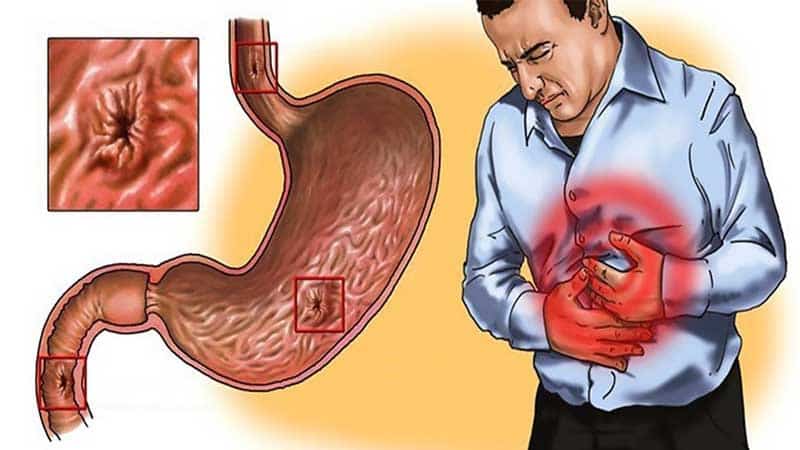 You can and should eat dill for gastritis, but in moderation. Any greens have a positive effect on our body in general and on the functions of the gastrointestinal tract in particular, and dill is no exception. This is not only a spice that we are used to adding to food all year round and using in preparations for the winter. Greens have medicinal properties.
You can and should eat dill for gastritis, but in moderation. Any greens have a positive effect on our body in general and on the functions of the gastrointestinal tract in particular, and dill is no exception. This is not only a spice that we are used to adding to food all year round and using in preparations for the winter. Greens have medicinal properties.
Dill is rich in: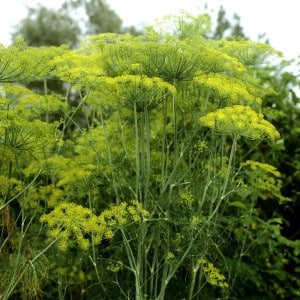
- fiber;
- vitamins A, C, E, P, PP;
- calcium;
- potassium;
- magnesium;
- iron;
- manganese
The plant provides the body with useful compounds and has a positive effect on the digestive system. For gastritis it becomes a medicinal supplement.
With high or low acidity
Gastritis with high acidity is characterized by a significant increase in gastric secretion. Bloating, colic, constipation are signs of increased stomach acidity. Fresh dill prevents fermentation processes, reduces nausea and relieves spasms in the gastrointestinal tract.
Important! You should not overuse the plant, as it enhances the production of hydrochloric acid.
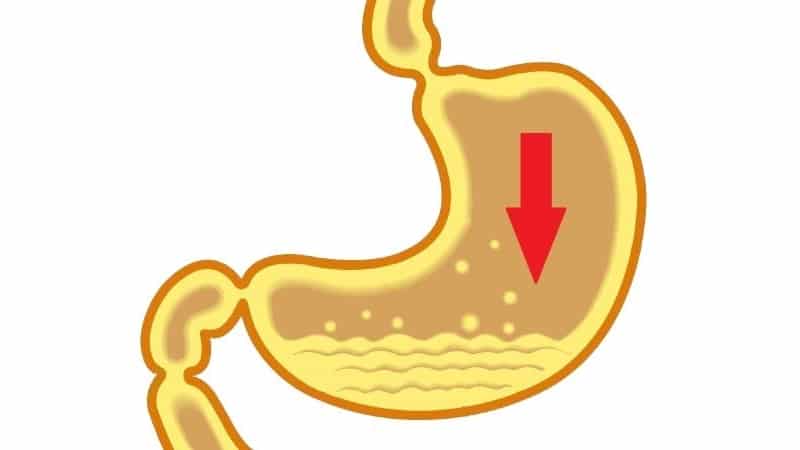 With gastritis with reduced secretory function, gastric juice contains an insufficient amount of hydrochloric acid. Consequently, food takes longer to digest and enters the intestines poorly processed. A person’s appetite worsens, a constant feeling of heaviness in the stomach, nausea, belching, an unpleasant taste in the mouth and bloating appear.
With gastritis with reduced secretory function, gastric juice contains an insufficient amount of hydrochloric acid. Consequently, food takes longer to digest and enters the intestines poorly processed. A person’s appetite worsens, a constant feeling of heaviness in the stomach, nausea, belching, an unpleasant taste in the mouth and bloating appear.
To normalize the secretory function of the stomach and reduce the load on the digestive organs, it is useful to introduce dill into the diet. It has a positive effect on acidity levels.
In acute or chronic form
Greens are useful for both chronic and acute forms of gastritis. It relieves discomfort and pain, increases the secretion of gastric juice, soothes colic and reduces bloating.
The effect of dill
Dill infusions and decoctions have been used for a long time to treat all kinds of problems with the gastrointestinal tract. Cramps, flatulence, diarrhea and constipation, stomach cramps - in all these cases, fragrant dill will help.
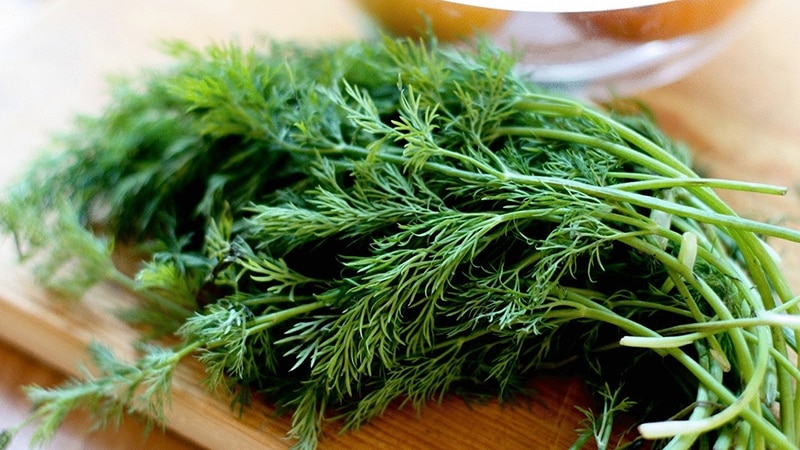
The plant soothes the gastric mucosa, normalizes digestion, promotes the removal of waste products from the body, and even relieves pain from ulcers. Its correct use improves the acid-base balance in the stomach and neutralizes bad breath.
Benefits and harms
The benefits of dill are manifested in the form of:
- normalization of metabolic processes;
- regulation of protein synthesis;
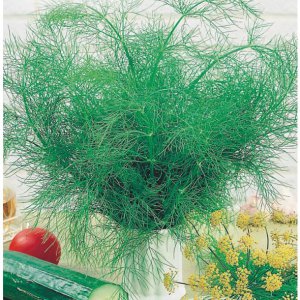
- antioxidant properties;
- strengthening the immune system;
- regulation of blood pressure.
It can cause harm if consumed in excess. Manifested by the following side effects:
- dizziness;
- nausea;
- weakened vision;
- prostration;
- apathy and drowsiness.
In order for a product to bring exceptional benefits to the human body, you need to know the limits in its use, therefore, before treatment, consultation with a specialist is required.
Interesting! 100 g of dill contains the daily requirement of vitamin C.
Norms and rules of use
You can eat about 7-9 tablespoons of dill per day without harm to health.
For gastritis, regardless of acidity, it is recommended to drink tea from this plant or before meals drink a decoction based on dill seeds.
Use in folk recipes for gastritis
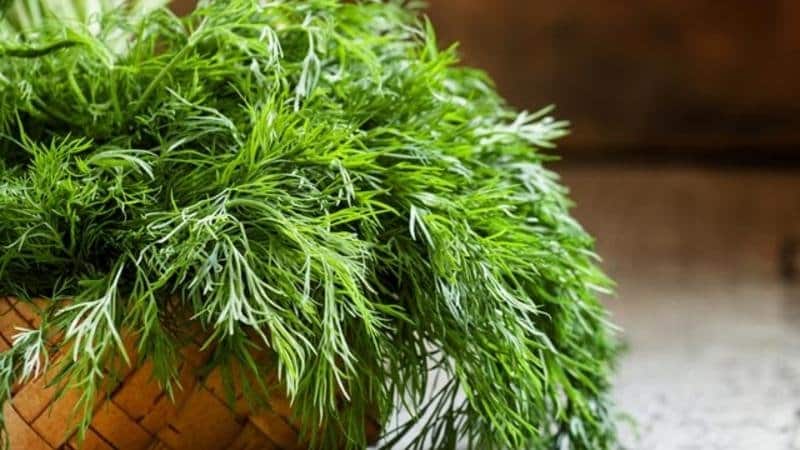
For gastritis, spice is used in a variety of ways, from a regular seasoning to a medicinal decoction, which replaces some medications:
- If you suffer from stomach pain, you need to take 1 teaspoon of dill seeds, ground into powder, and pour 250 ml of boiling water. It is better to do this in a thermos or tightly close the container with a lid, wrap it in a warm cloth and leave for two hours. Drink the resulting infusion 150 ml several times a day 20 minutes before meals.
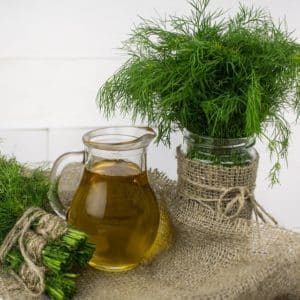
- To improve the functioning of all gastrointestinal organs, a medicinal tea is prepared: 1 tablespoon of dill seeds is poured into 200 ml of boiling water and steeped for five minutes. Drink like regular tea.
- For chronic gastritis with high acidity, it is recommended to drink 1 teaspoon of dill juice three times a day with milk and honey after meals.
- For colitis, 2 teaspoons of chopped dill are poured into 500 ml of boiling water and left for 30 minutes. Drink 1/3 glass three times a day before meals.
- For gastritis, pour 1 tablespoon of dill seeds into a glass of hot water and bring to a boil. Next, simmer the mixture over low heat for 15 minutes, then strain and allow to cool. Take 100 ml of the product before each meal. As a rule, the duration of treatment is 1-3 weeks, it all depends on the speed of achieving the effect.
- For gastritis with high acidity, dill seed is ground into powder and taken 1 teaspoon during meals, washed down with clean water.
Interesting! Essential oils of dill are not only responsible for its aroma, but also help activate digestive processes.
Benefits of dill seed
Not only dill greens are useful, but also the seeds and prepared essential oil. Dill seed:
- acts as a bactericidal agent that neutralizes putrefactive processes in the organs of the digestive system;
- helps preserve microflora in the intestines;
- removes waste and toxins from the body;
- affects the secretion of gastric juice;
- stimulates appetite.
Contraindications
The list of contraindications for dill decoction (both herbs and seeds) is extremely limited. First of all, this is individual intolerance, manifested by allergic reactions. 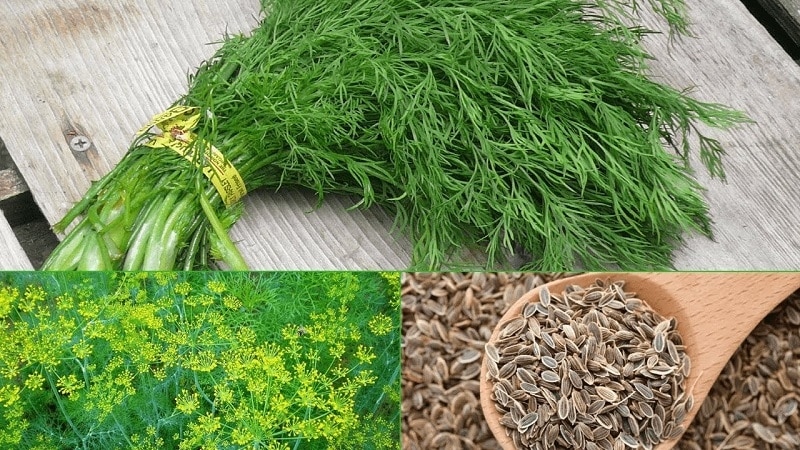 You should also use dill decoction with caution when:
You should also use dill decoction with caution when:
- gastritis with high acidity;
- heavy discharge during menstruation;
- threat of miscarriage;
- diabetes mellitus;
- low blood pressure;
- ulcer.
Read also:
Is it possible to eat pumpkin with gastritis: we study contraindications.
Is it possible to eat beets with gastritis: let's get acquainted with the contraindications.
Conclusion
Dill decoction is an effective remedy with a minimum of contraindications, used by a wide variety of categories of patients.The ease of preparation and availability of raw materials make dill infusion a popular traditional medicine.
The abundance of nutrients covers part of the daily requirement of minerals and vitamins for an adult, but when consumed fresh and application in other forms, caution should be exercised. Fragrant spices have their drawbacks that must be taken into account.
It is difficult to understand what is the benefit and what is the harm from dill seeds, it is written that it is good for gastritis, but they also write that with increased acidity it cannot cause harm. And how do you understand?? I have chronic pancreatitis, with gastrodoudenitis (gastritis) and it is not clear whether or not Dill seeds should not be taken.